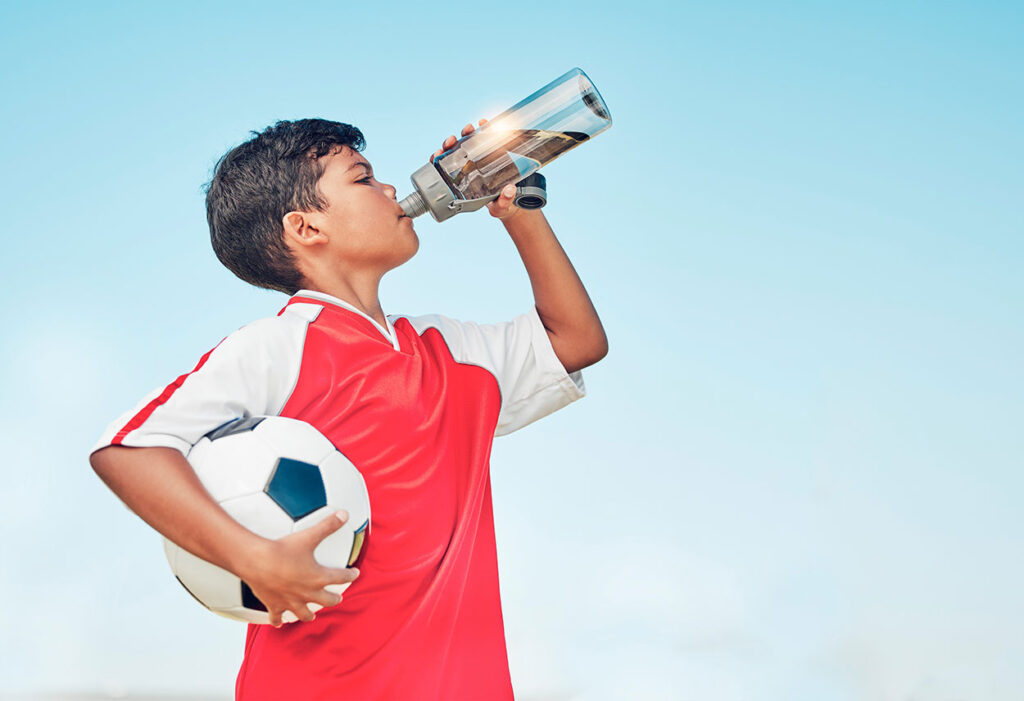As Denver-area families dive into another season of youth sports, it’s important to make sure our kids are not only excelling on the field but also staying safe, healthy, and happy along the way. From soccer on the Front Range to basketball in local gyms, Colorado kids are active year-round—and while sports provide fantastic opportunities for fitness and teamwork, they also bring physical and mental health challenges.
At Partners in Pediatrics, we’re here to help families create healthy routines so sports remain a positive and enjoyable part of your child’s life. Here are some tips to help kids thrive on and off the field.
-
Preventing Injuries Starts with Preparation
Warm-ups and cool-downs are essential. Before practice or a game, encourage your child to stretch and jog lightly to get their blood flowing. Afterward, cooling down with light movement helps prevent soreness and injuries.
Conditioning matters. Many injuries happen when kids suddenly increase activity levels. Building fitness gradually—through regular activity like biking, swimming, or hiking around Denver’s beautiful trails—can help strengthen muscles and prevent strains.
Use the right gear. Well-fitting shoes, protective equipment, and sport-specific gear (like helmets for biking or shin guards for soccer) are key. If your child is in a contact sport, make sure equipment is in good condition and meets current safety standards.
-
Hydration in Colorado’s Climate

At our altitude, kids are more prone to dehydration. Make sure your child drinks water before, during, and after activity—not just when they feel thirsty. Sports drinks should be limited to long, intense practices; for everyday use, water is best.
A helpful tip: send your child to practice with a labeled water bottle and encourage them to take breaks often, especially on hot days.
-
Fueling Sports with Nutrition
Active kids need extra energy. A balanced diet with whole grains, lean proteins, fruits, and vegetables helps support growth and athletic performance.
Before activity: A small snack like a banana, yogurt, or whole-grain toast gives kids energy.
After activity: A protein-rich snack helps with recovery—try string cheese, peanut butter with apple slices, or hummus with veggies.
-
Building in Rest and Recovery
Rest is just as important as practice. Kids should have at least one day off per week from organized sports to allow their bodies and minds to recharge.
Sleep is another big factor—school-age children generally need 9–12 hours of sleep per night. Adequate sleep boosts performance, focus in school, and mood regulation.
-
Supporting Kids’ Mental Health in Sports

Sports should be fun—not stressful. While competition can teach resilience, too much pressure may lead to anxiety, burnout, or loss of enjoyment. Here’s how parents can help:
- Keep it positive. Focus on effort and teamwork, not just winning.
- Check in regularly. Ask your child how they’re feeling about their sport. Are they still enjoying it? Do they feel supported by their coach and teammates?
- Watch for stress signals. Trouble sleeping, frequent stomachaches, or irritability may mean your child is feeling overwhelmed.
- Model balance. Encourage other activities outside of sports—art, reading, free play—so kids don’t feel their identity is tied only to athletic performance.
Creating a healthy sports experience means helping kids grow confidence, build friendships, and find joy in movement—not just improve their skills.
If your child needs to talk to anyone, PIP’s Jessy Boon is a wonderful behavioral health provider who can work wonders with your little athlete! Click here to make an appointment with Jessy.
-
When to Call Your Pediatrician
Reach out to your pediatrician if your child experiences:
- Persistent pain or swelling after activity
- Signs of dehydration, like dizziness, dark urine, or fatigue
- Emotional distress related to sports participation
- Repeated injuries or overuse issues
Partners in Pediatrics provides Denver metro families with guidance and care for all aspects of child health—from physical checkups and sports physicals to mental health support.
7. Build Strong Communication with Coaches
Encourage open communication between your child, their coaches, and yourself. Make sure coaches emphasize safety, fairness, and fun over excessive pressure. Advocate for your child if they are playing through pain or feeling overwhelmed.
Final Thoughts on Making Kids’ Sports Healthy, Safe & Fun

Sports are a wonderful way for kids to build strength, confidence, and friendships. With the right balance of safety, rest, nutrition, and emotional support, children can thrive both on and off the field.
If you’d like personalized guidance for your young athlete, schedule a visit with Partners in Pediatrics today. Together, we’ll help your child stay active, safe, and happy throughout the sports season.



Leave a Reply